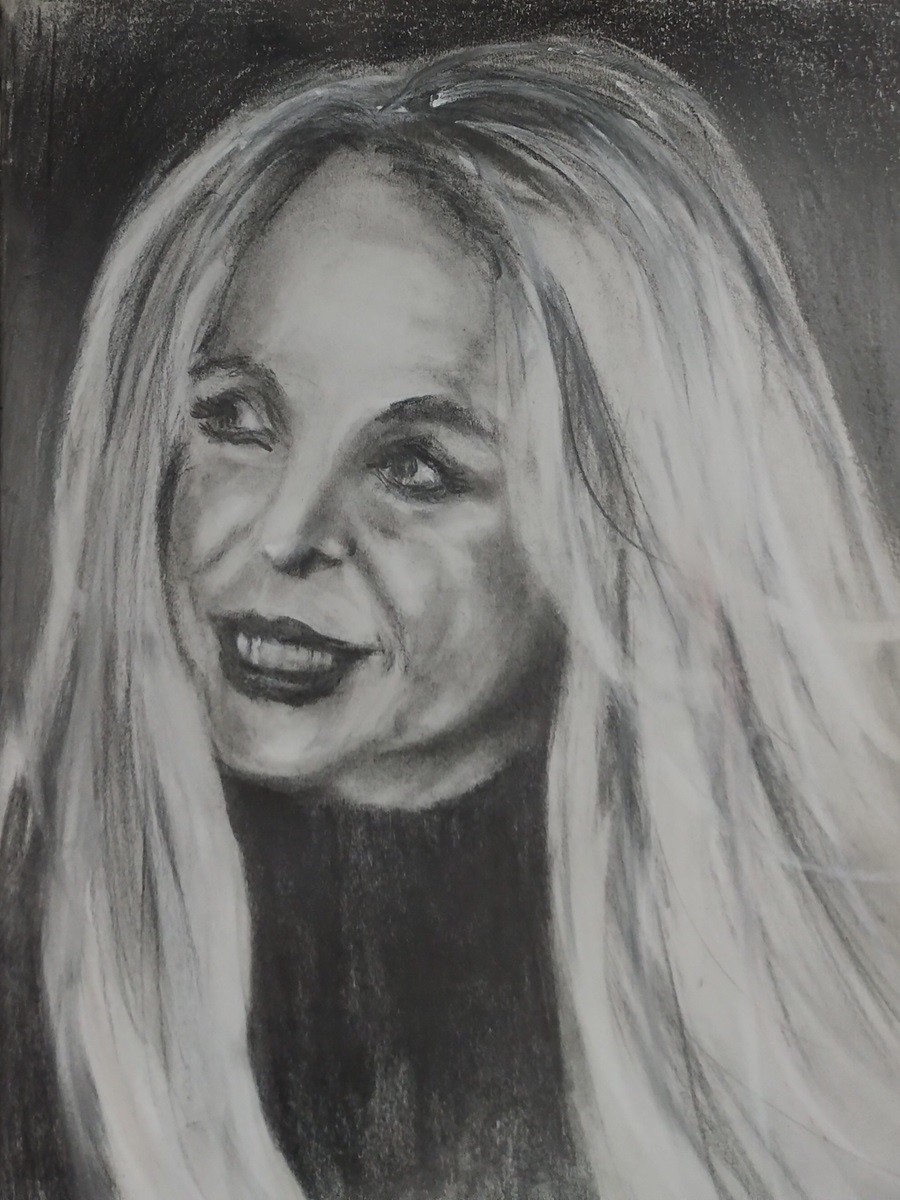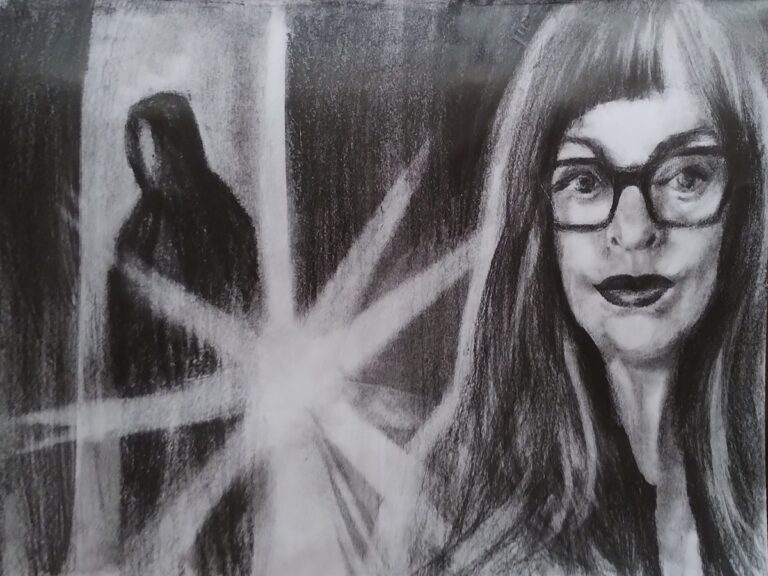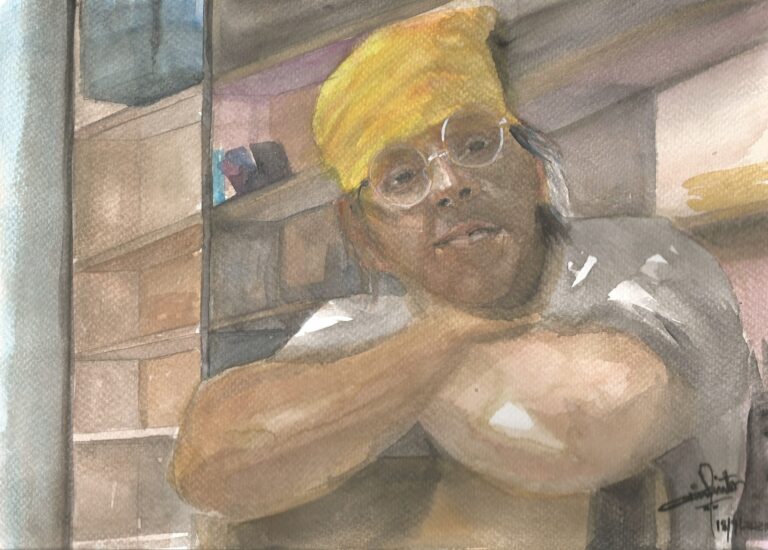
As a young girl the American writer Sylvia Wright’s mother read aloud to her from Percy’s Reliques. Her favourite was the poem The Bonnie Earl O’ Moray. She misheard—quite consequentially it would turn out—the closing line of the first stanza “And lain him on the green” as “Lady Mondegreen.” When corrected she found it hard to accept that the line was actually merely a dour restatement of the murder of James Stewart, Earl of Moray in the previous line and not the romantic picture of the Earl dying beside his beloved consort Lady Mondegreen as she had vividly imagined. She had the writer’s good instinct to turn this personal experience into a coinage, describing the phenomenon of misheard lyrics that are better than the original: mondegreen. Something similar happened to pop music audiences who misperceived, through no fault of their own, the bizarre twists and turns in Britney Spear’s life and made it all make sense by labelling her a ditzy diva or wild and woolly slut.
Wild Child or Feral Home?
You can hardly blame them for misunderstanding Britney and misconstruing her circumstances, but after the memoir it is all the harder to ignore their casual commentarial cruelty. Reports about Britney getting snapped partying panty-less with and without Lindsay Lohan and Paris Hilton, marrying a childhood friend for a day, having a public meltdown and shaving her head for no clear reason made it really easy to conclude she was troubled if not severely mentally ill. Like a hit song taking on a life all its own, its words no longer restricted to the original text, scenes from her life constructed out of page three news and celebrity gossip columns took on the complexion of something very like but also much more narratively persuasive—simpler—than the life itself. For those used to construing everything Britney has said and done before, during, and after the thirteen years she spent under an exploitative conservatorship overseen by her ghoulish father Jamie Spears as being conditioned by her mental instability or personality flaws her memoir comes like a thief in the night.
The casual fan unaware of her career trajectory might’ve thought her teenage superstardom was what set her up for a tumultuous life. But Spears was born for trouble to an alcoholic father whose unexplained absences were a blessing and a pushy narcissistic mother who turned the eight-year-old’s passion for song and dance into a meal ticket. Her parents drove eight hours to Atlanta to have her compete with more than two thousand kids for a chance in The All New Mickey Mouse Club—where fellow future celebrities Justin Timberlake, and Christina Aguilera were also auditioning. On learning they were looking for kids over ten her parents coached her to lie she was nine (Britney 19). Though the club passed at the time, her mother was advised that Britney was talented and should go to New York. While mama Spears sent an audition tape to a recommended agent and received a call-back the nine-year-old spent six months cleaning shellfish and waiting tables at Lexie’s Seafood Restaurant, Granny’s Seafood and Deli.
Although her precocity was all her own it is hard to dismiss the role of nurture in Spears’ loss of her virginity to a “much older boy” [seventeen], her drinking with her mother and smoking with her friends, and driving her mom and baby sister around at age thirteen. Britney’s mother
“was telling Meredith Vieira on the Today show that she’d spent hours wondering how things went so wrong with [Britney]. On another show, the audience clapped when she said [Britney’s] sister was pregnant at sixteen. That was classy as shit, apparently, because she was still with the father! Yes, how wonderful—she was married to her husband and having a baby at seventeen. They’re still together! Great! It doesn’t matter that she’s a child having a child!” (112).
Conservatorship & Beyond
By her own admission Britney was in poor mental shape when her second kid came around; when he was about two months old she says she may have regressed to that age herself. But this was also a time she was very productive: she recorded Blackout, and presented at the American Music Awards while battling custody of her children with ex Kevin Federline. Britney’s father, failed sportsman Jamie Spears took control of her career in 2007 following a public breakdown in which she attacked a paparazzo’s car at a gas station. Like a tragicomic parody of that scene from Captain Phillips (2013), he told her “I am Britney Spears now” (115). What followed was thirteen years of controlling what she ate, how much she could spend, what clothes she wore, and what professional engagements she would take on. One of his associates, Robin Greenhill would screen any one Britney intended to date and would tell the man her medical and sexual history (116). Her access to her kids was made conditional on her playing along and doing anything asked of her; if she stood up for herself they would do anything in their power to establish she was mentally unfit to be a mother. She was forced to perform a gruelling Las Vegas residency and rewarded with naps with her children. The conservatorship was she says “the worst thing that could possibly ever happen to my music, my career, and my sanity” (116).
If the internet brought out the worst tendencies of traditional media, rewarding paparazzi who could create a fake urgency around celebrities and encouraging ever more brazen invasion of their private lives, it also provided the sort of direct connection between fan and star that would give birth to the Free Britney movement. Fan comments about Britney’s lack of access to legal counsel of her choosing rather than someone on her dad’s payroll were crucial in her finding a lawyer who would ultimately help free her from the onerous and exploitative conservatorship.
“In my forties, I’m trying things for what feels like the first time” says Britney (174), underlining the disturbing possibility that our enlightened world remains a place where captivity and coercion can remain hidden in plain sight. Her candour in telling her side of the story so long controlled by others doesn’t make excuses for her own personal foibles. Perhaps this is also why her telling of it isn’t laden with the sort of persecutory delusions that plague the book-length whinge prince Harry loosed upon the world early last year. The quondam royal’s petty score-settling to the tune of a thousand tiny violins punctuating imagined slights grate on the reader and erode faith in the monarchy. By contrast the light touch Britney brings even to bleakest episodes of exploitation by various men in her life, bereft of self-pity and sometimes even brave enough to chuckle at an indignity, make one believe celebrities can be people too.
REFERENCE
Britney Spears (2023) The Woman in Me. Simon & Schuster.





